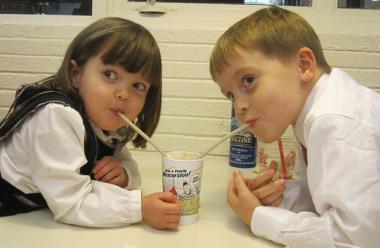Several years ago, trawling through TED talks I ran across a lively Australian called Rachael Botsman, who I have subsequently read about from other sources. Hearing her most recently on the radio her subject, the ‘sharing economy’, fascinated me and I wondered if it is a sign of a real change. The digital world has fundamentally changed quite a lot of behaviours and this looks like it may be one of them.
The logic is impeccable. The older we get, the more ‘stuff’ we accumulate as anyone moving house begins to appreciate. Recycling centres teem with, often perfectly usable, items. The recession requires re-thinking our necessary expenditures. Britain has the smallest houses per capita in the developed world (I know this is true because I heard it on QI) which makes storage even harder. Although that can’t be the real reason since the trend started in the US which must have the largest houses per capita in the world.
Marketing stats like 50% of homes own a power drill but use it on average only 4 times a year and many other similar statistics show that we want access to a lot of things that we rarely use and don’t necessarily need to own. But again, like the minimal storage space argument, this is a logical line of thought and, indeed, has been true for quite a long time.
What’s new is the killer psychological finding I read not long ago which tells me something important is going on: that this is the first generation in history for whom a car isn’t a status symbol to young men. Status resides in technology - ownership or expertise. So it’s not what I own, it’s what I know.
And there are other emotional underpinnings to this interest in sharing: environmentalist beliefs are increasing and strong anti-capitalist views stir amongst the young (albeit often just temporarily). The language reflects it: ‘I want to share this thought with you’ rather than ‘I’d like to tell you something’
But the real facilitator is the connectivity the digital world enables: the expectation of making public vast amounts of personal information, the ‘normalcy’ of online dating, the heart warming stories of problems solved by strangers via Reddit or other similar sites and so forth.
Despite the horror stories of tragic consequences of involvement with strangers, I get the sense that digital natives (and here I mean up to 30 or so, not just teenagers) are more trusting. Certainly, less frightened of contact with strangers than older generations. After all, for the vast majority, the experiences of sharing information, photos, problems, experiences etc with virtual strangers has been largely positive. Add to that the phenomena of eBay and Skype.
How far will this go? At the moment it seems that the bulk of sharing behaviour seems most prominent in the millennial generation and possibility, although I don’t know, single people. Will the next life stage with children and mortgages change this? Somehow I doubt it – providing businesses like Airbnb continue to work and spawn more such sharing models, and providing the whole sharing economy sector doesn’t become tarnished by some widely publicised bad behaviour.
Read more about how genuinely original business models are emerging from the sharing economy in the December issue of Market Leader. And read more from Judie in our Clubhouse.
Newsletter
Enjoy this? Get more.
Our monthly newsletter, The Edit, curates the very best of our latest content including articles, podcasts, video.
Become a member
Not a member yet?
Now it's time for you and your team to get involved. Get access to world-class events, exclusive publications, professional development, partner discounts and the chance to grow your network.

